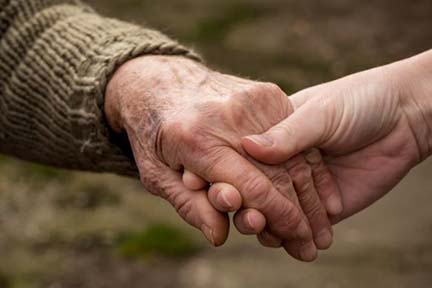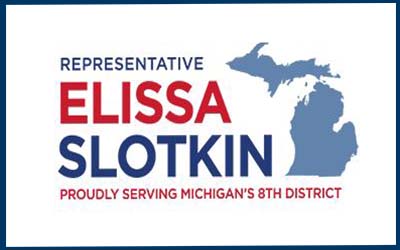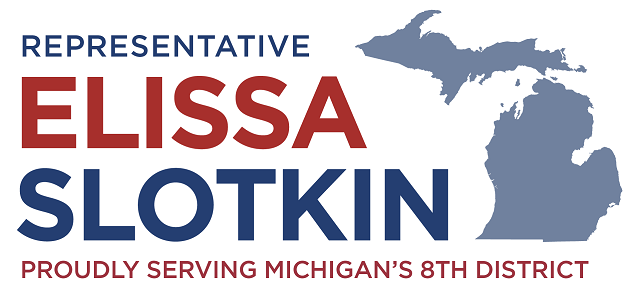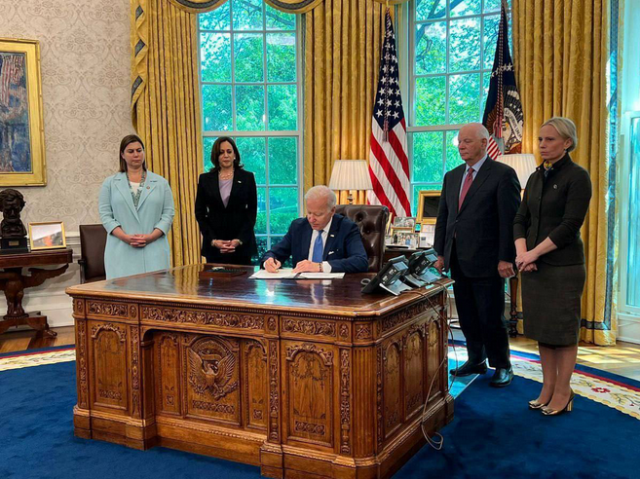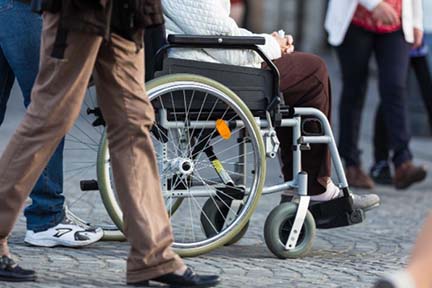
Whitmer Signs Bills Supporting People with Disabilities

FOR IMMEDIATE RELEASE May 12, 2022 Contact: press@michigan.gov
Governor Whitmer Signs Bills Supporting People with Disabilities, Increasing Government Transparency
LANSING, Mich. – Today, Governor Gretchen Whitmer signed House Bill 4256, Senate Bill 258 and Senate Bill 259 into law. House Bill 4256 allows training of service animals in real-world settings, which will benefit people with disabilities who rely on service animals. Senate Bills 258 and 259 ensure that government notices are posted on newspaper websites, increasing accessibility and transparency. This brings the total of bipartisan bills signed by Governor Whitmer to 823.
“Today, I’m signing bills to support Michiganders with disabilities by allowing service animals to enter public places and increasing accessibility by requiring all legal notices to be placed online for free public access,” said Governor Whitmer. “Together, these bills add to the over 800 bipartisan bills I have already signed and are proof of what’s possible when we work side by side to get things done. I will work with anyone to support our neighbors, family, and friends with disabilities and make our state and local governments more accessible.”
Supporting Those with Disabilities
House Bill 4256 would allow service animals in training to accompany their trainer at places of public accommodation for the purpose of training or socializing the animal and would be allowed in areas where members of the public are permitted to go. The animal would remain under the control of their animal raiser or trainer and must have a harness, leash, or other tether.
House Bill 4256 was sponsored by Rep. Tommy Brann, R – Wyoming, and a copy can be found here.
Making State and Local Government More Transparent
Senate Bills 258 and 259 together require newspapers who are selected to publish legal notices to also place notices online for free public access. Under these bills, newspapers must provide access to notices on their website and are prohibited from placing that page behind a pay wall. These bills will improve public access to information while maintaining records that newspapers provide.
“The Michigan Press Association is thrilled that Governor Whitmer signed these bills today,” said Lisa McGraw, Public Affairs Manager, Michigan Press Association. “Her support of the importance of a permanent legal record that provides independent notice of government activities to taxpayers in Michigan has always been appreciated by Michigan’s newspapers.”
“Local news outlets are a critical component of getting information to and from their residents, but not everyone has the ability or access to the same materials,” Sen. Sylvia Santana (D-Detroit) said. “I am thrilled to see this overdue legislation signed into law that strengthens transparency of information sharing within and across our communities.”
“I’m pleased that the governor signed my bills, SB 258 and 259,” said Sen. Curtis VanderWall (R-Ludington). “These bills will increase public transparency by requiring newspapers to publish public notices online as well as in print. When public bodies meet, they are required to publish a notice in the local newspaper at least two weeks before the meeting takes place, and now the newspaper will have 72 hours to publish that notice online as well. In an increasingly digital age, governments must use all avenues to reach their communities. Whether you read the newspaper delivered to your doorstep, or pull it up on your phone, you can be confident that you won’t miss important information.”
Senate Bill 258 was sponsored by Sen. Curtis VanderWall, R – Ludington, and a copy can be found here.
Senate Bill 259 was sponsored by Sen. Sylvia Santana, D – Detroit, and a copy can be found here.
|



